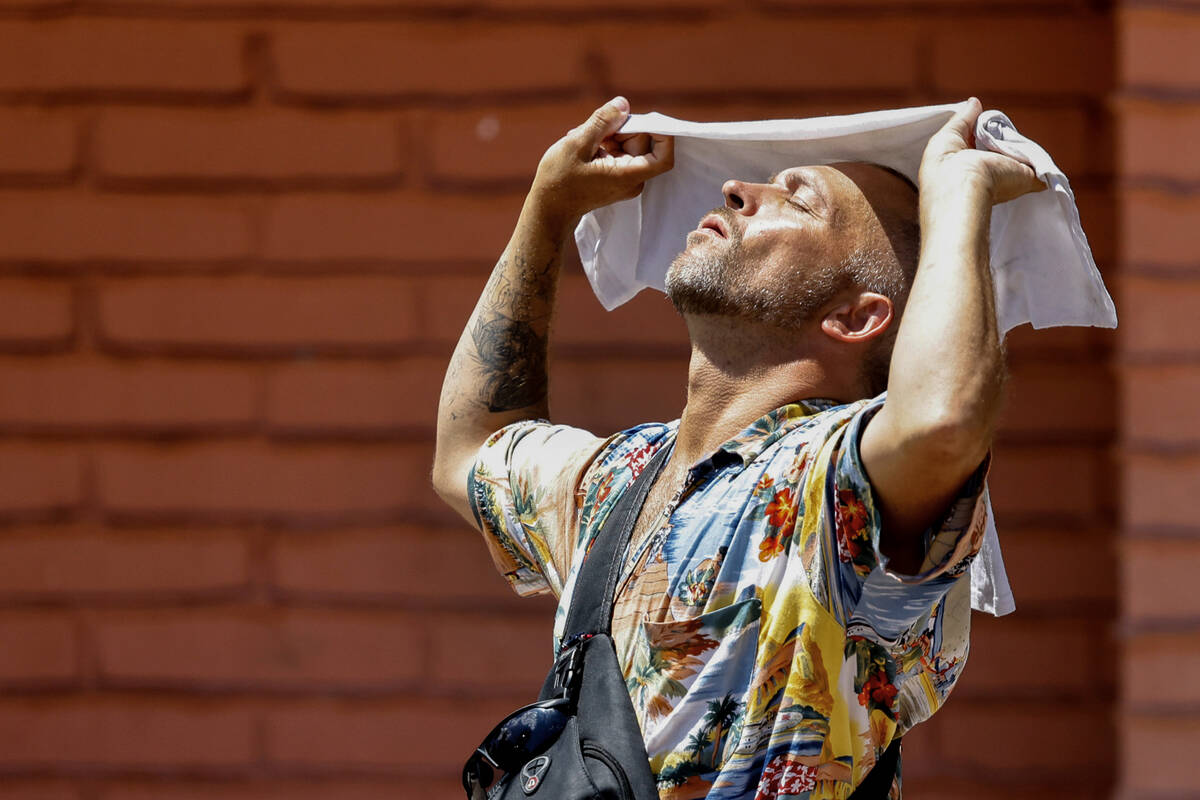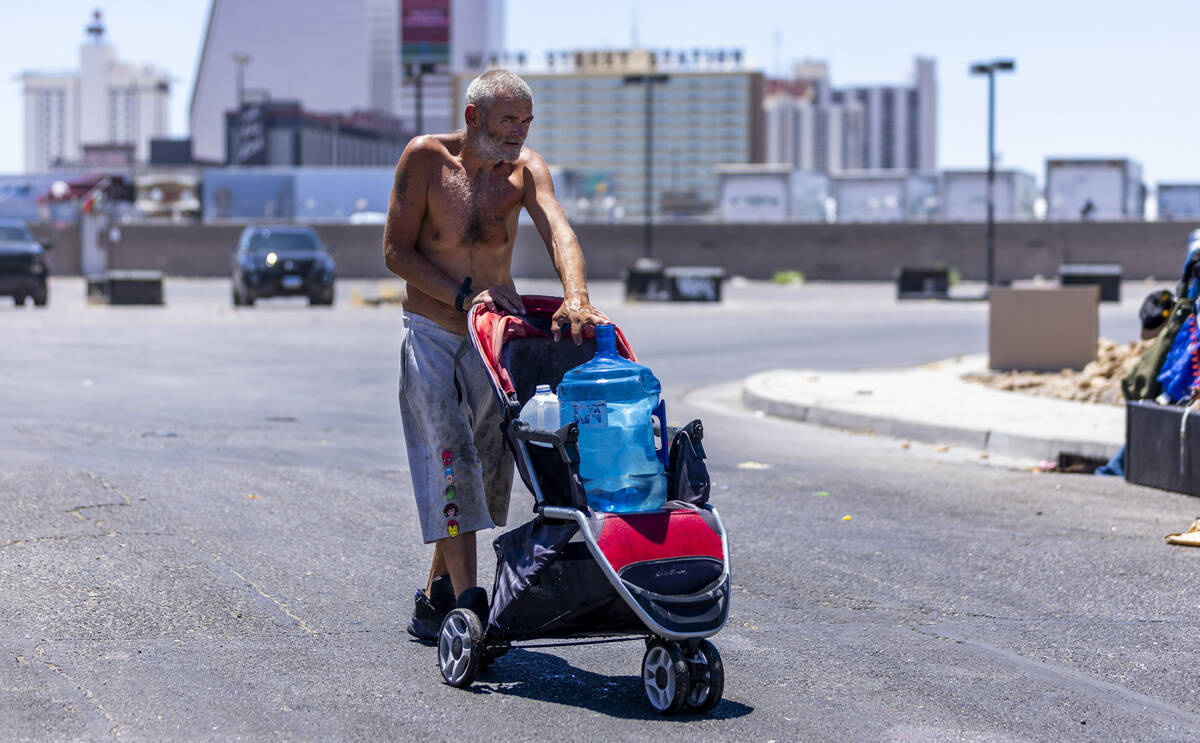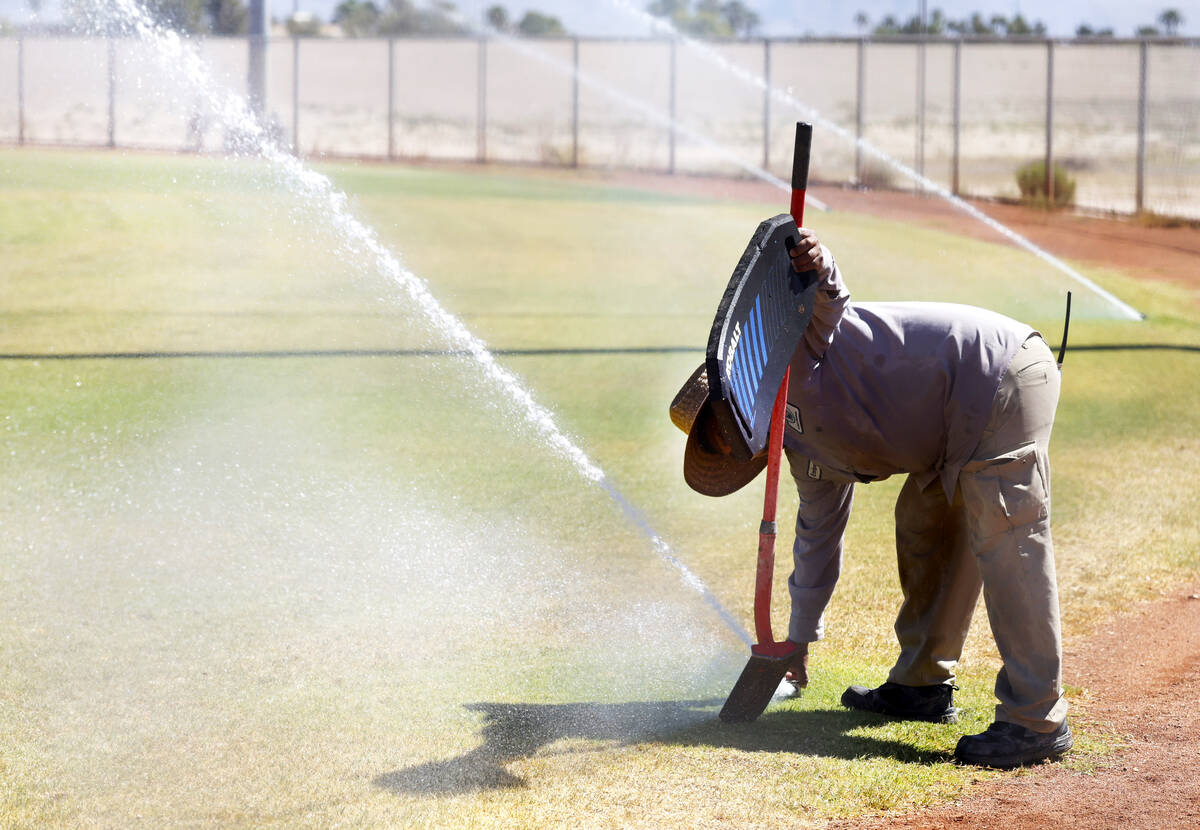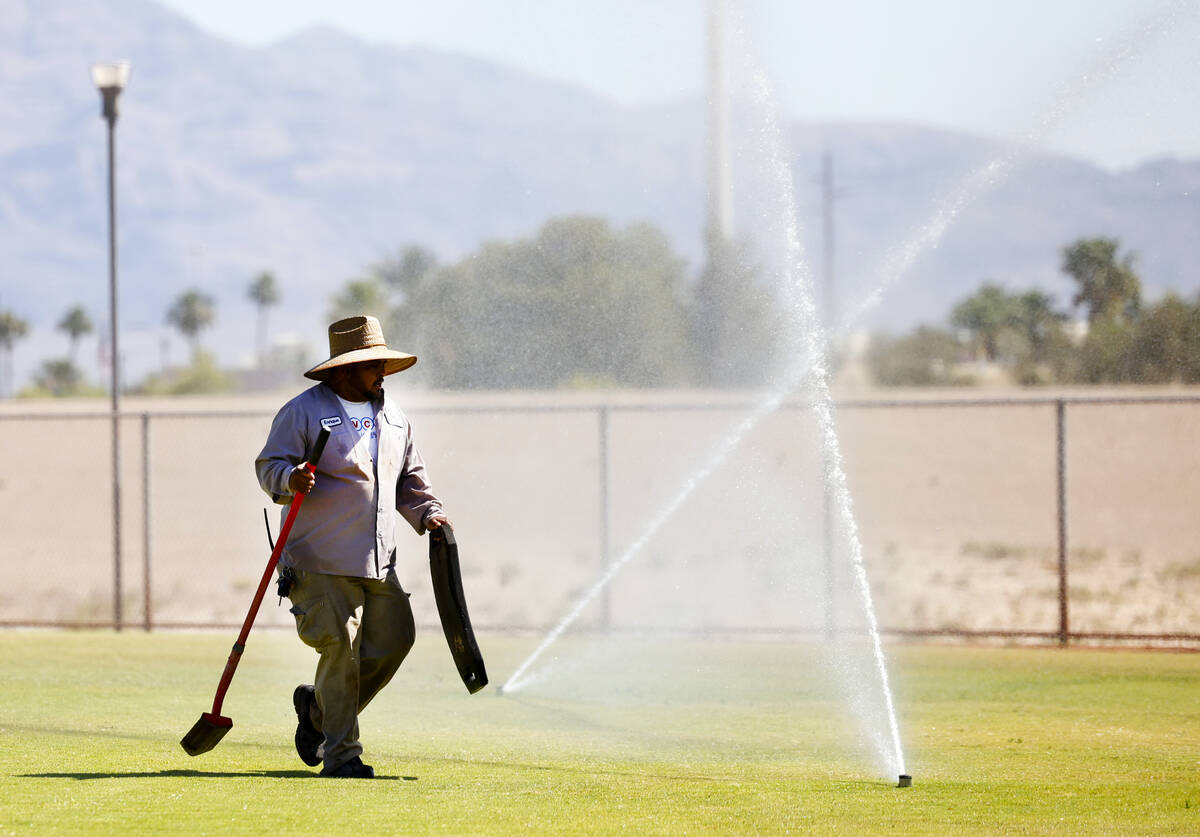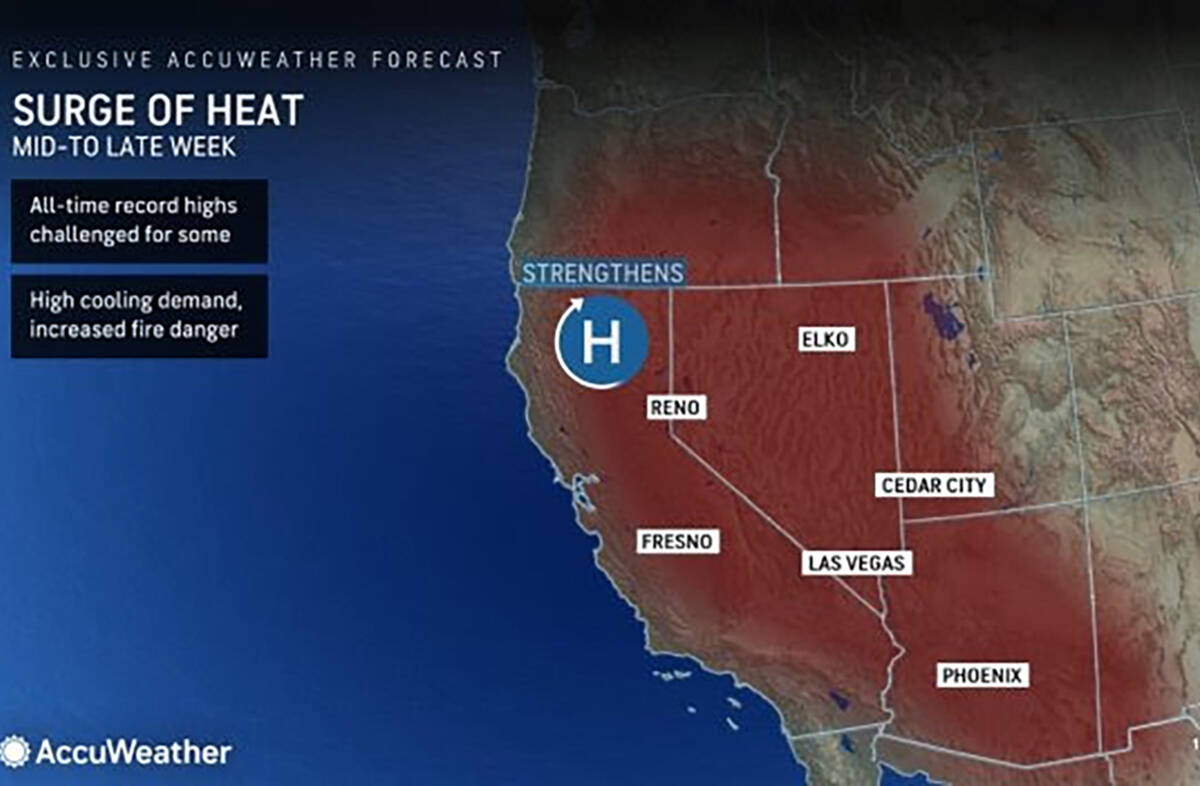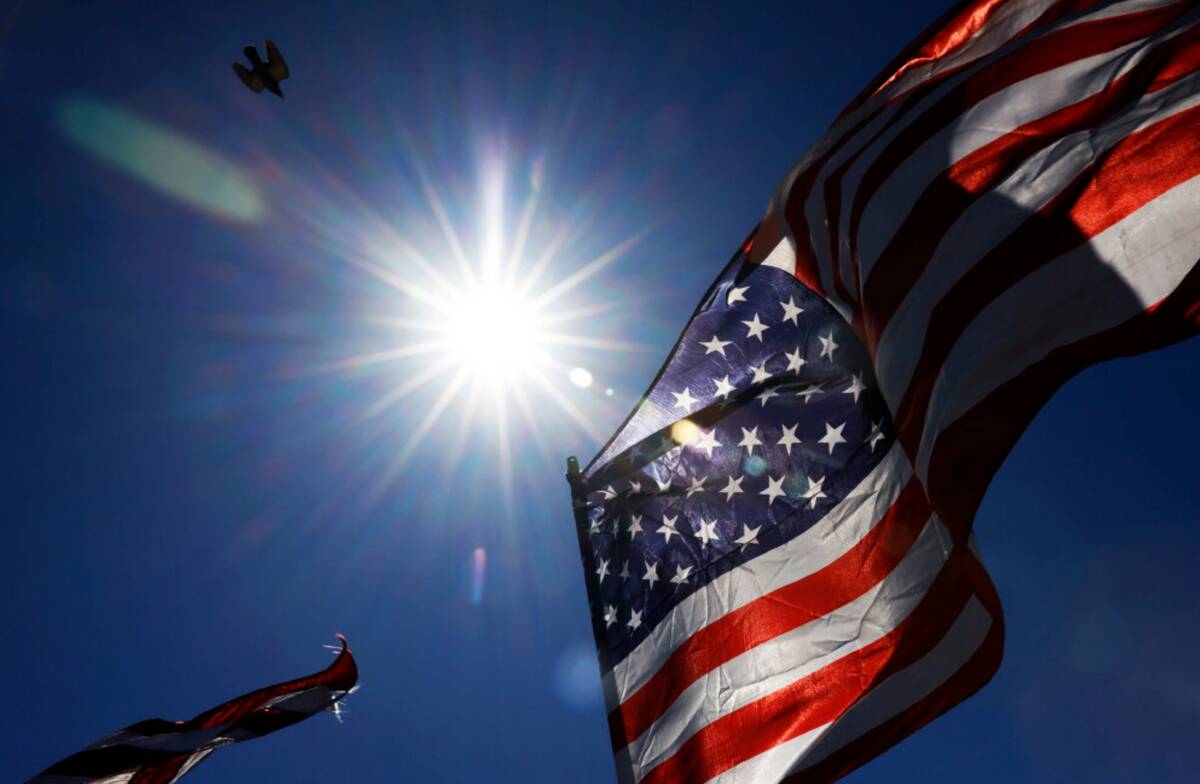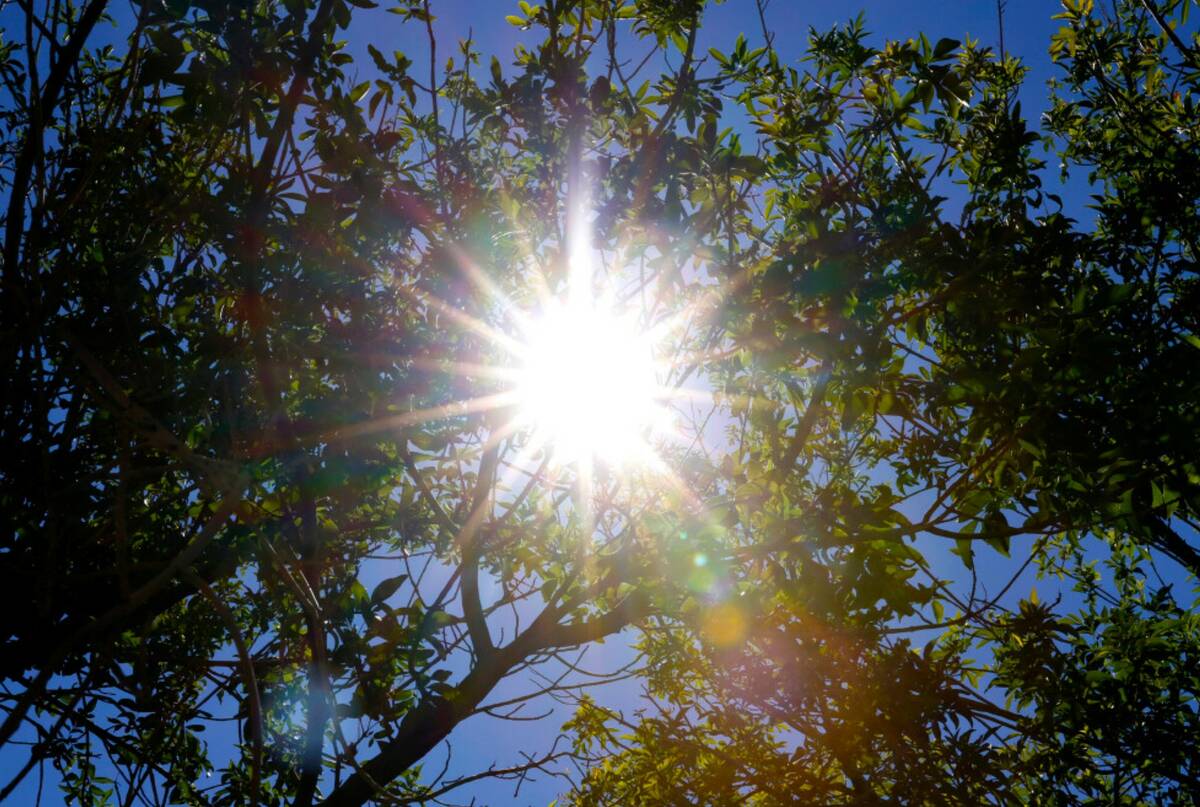‘Dangerously hot’ weather is coming to Las Vegas for July 4th
Get ready for another round of extreme heat, just in time for the Fourth of July.
On Monday, the National Weather Service issued an excessive heat warning this week for the Las Vegas Valley, starting at 11 a.m. Wednesday and lasting until 11 p.m. July 8.
Excessive Heat Warning! ⚠️
Yes, the desert gets hot in the summer. But this heat will be well-above-average for many days & temps will not adequately cool overnight to give the body proper recovery.
This level of heat is dangerous and prolonged.#VegasWeather #NvWx #CaWx #AzWx pic.twitter.com/iEDFCdV79w
— NWS Las Vegas (@NWSVegas) July 1, 2024
The agency said, in a statement, to expect “dangerously hot conditions for an unusually long period,” with high temperatures in the valley between 110 and 115 degrees.
It said “hot temperatures overnight will mean little relief from the daytime heat, especially in Las Vegas and Death Valley, where low temperatures may not fall below 90 degrees for several days.”
Record-breaking heat?
June’s record-setting heat will intensify all week, says the service — perhaps reaching all-time Las Vegas highs.
The Fourth of July and the day after have projected highs of 114. Wednesday, Saturday, and Sunday are forecast for highs of 113.
But the weekend could produce record highs, according to weather service meteorologist Matt Woods.
“The record all-time high is 117 set five times, but we are flirting with that possibility by next weekend,” Woods said. “It’s several days away, but right now we’re looking at a 25 percent chance of 117 on Saturday and a 30 percent chance on Sunday. No guarantees, but it is a possibility.”
Overnight cooling will be virtually nonexistent. Morning lows will rise from low 80s early in the week into the upper 80s by the end of the week. Woods said that overnight lows around 92 to 94 are up to a 40 percent chance next weekend.
Monday should have a high around 110, a few degrees higher than Sunday’s top of 108 at the Las Vegas airport.
What's more impressive is how much we beat the old records by.
Avg High Temp was beat by 1.2°F, which is more than what separates 2nd & 8th place.
Avg Low Temp was beat by 2.4°F, which also separates 2nd & 8th place.
Avg Temp was beat by 1.8°F, which separates 2nd & 7th place.
— NWS Las Vegas (@NWSVegas) July 1, 2024
The June daily average temperature was 94.6, a record surpassing the 92.8 mark set in 2016. The average daily high was 106.2 and average daily low was 83. All are records since local weather records started in 1937.
In addition, June had 28 days where the high reached 100 or higher and 23 days with lows of 83 degrees or higher. In 2023, the valley’s first 100-degree day was on June 30.
Rainfall at the airport is 2.19 inches for the first six months of the year, slightly above the norm of 2.09 inches. However, it has not rained at the airport since .24 of an inch fell on April 26.
Air quality issues possible
AccuWeather expert meteorologists say the heat wave and weather pattern in the western U.S. could lead to pockets of poor air quality.
“Pollutants such as ozone can get trapped by local inversions,” said AccuWeather Senior Meteorologist Brett Anderson.
An inversion develops when a pocket of warmer air is sitting over top of a pocket of cooler air. Instead of air being able to rise like normal, the air will get trapped underneath the inversion and hovers near the ground.
The Clark County outlook for air quality, as of Sunday, was moderate for ozone this week and good for particulate matter.
County officials issued a smoke advisory from Thursday through Sunday because of smoke from legal and illegal fireworks as well as the usual summer ozone.
Fire danger
With hot and dry conditions on Independence Day and over the weekend, AccuWeather expert meteorologists encourage people to use caution with fireworks in areas with drought conditions and dried-out vegetation, in addition to following routine safety guidelines.
“All you need is a trigger mechanism to spark a fire, whether it’s man-made or the wind,” said AccuWeather Lead Long-Range Forecaster Paul Pastelok. “We are not expecting a ferocious wildfire season, but we do feel there’s going to be more action in comparison to last year. We are expecting more fires and more acreage burned in California, Oregon, and parts of Nevada.”
More than 2.3 million acres of land have burned across the United States so far this year, according to the National Interagency Fire Center. Wildfire activity has been trending higher this year compared to last year; less than one million acres of land had burned in the U.S. at this point last year.
Contact Marvin Clemons at mclemons@reviewjournal.com.



